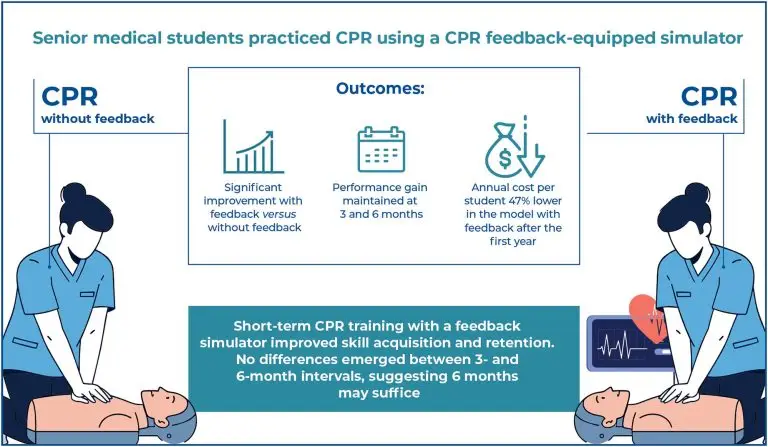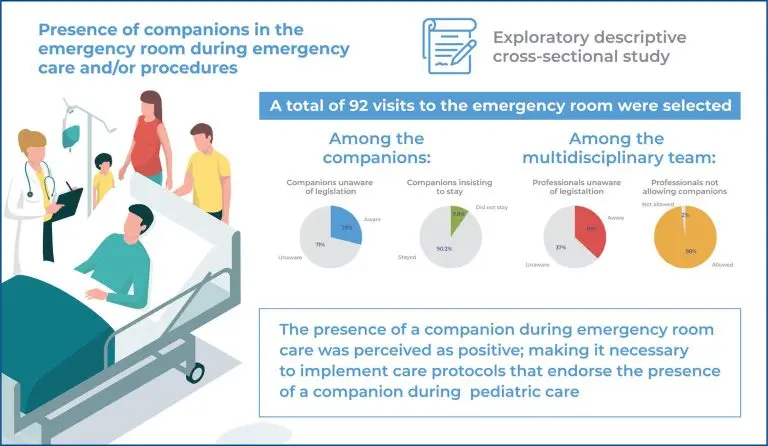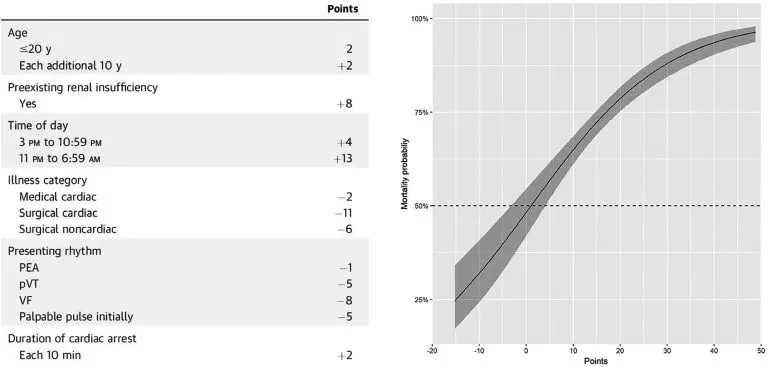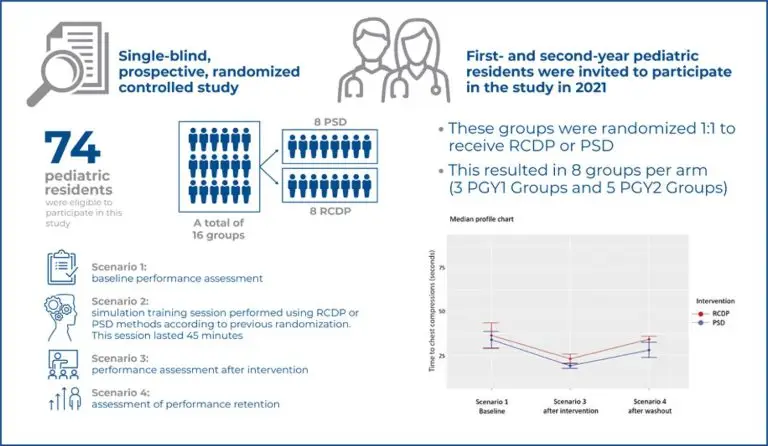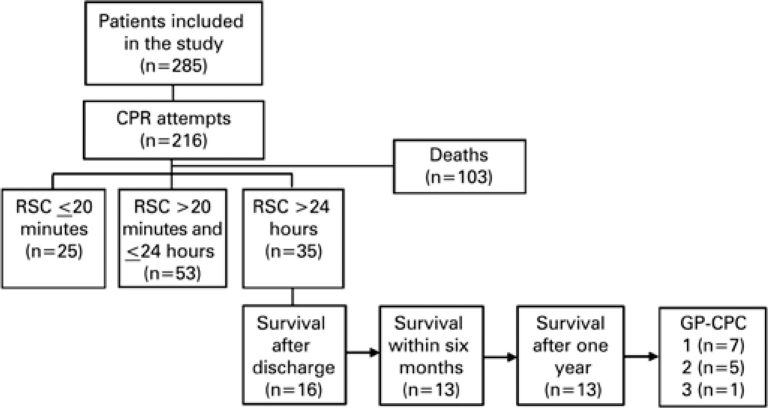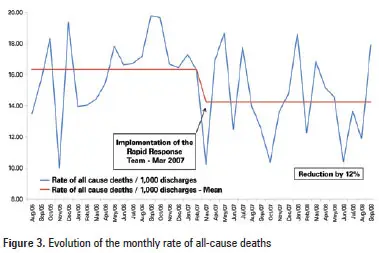03/Oct/2025
Analysis of acquisition and retention of cardiopulmonary resuscitation skills according to training frequency
DOI: 10.31744/einstein_journal/2025AO1257
Highlights ■ All variables that affect the quality of cardiopulmonary resuscitation were analyzed. ■ In addition to performance, we analyzed participants’ confidence. ■ This study considered the cost of training using the traditional methodology versus feedback. ABSTRACT Objective: To analyze cardiopulmonary resuscitation skill acquisition and retention at 3 and 6-month intervals and determine the optimal training frequency and associated costs. Methods: Fifth and sixth-year medical students practiced cardiopulmonary resuscitation using a feedback-equipped simulator. Results: The study included 43 students. Training […]
Keywords: Advanced cardiac life support; Cardiopulmonary resuscitation; Clinical skills; High fidelity simulation training; Simulation training; Simultion training
10/Jun/2025
Perception of the multidisciplinary team and the patient’s family companion regarding their presence during emergency room care
einstein (São Paulo). 10/Jun/2025;23:eAO0871.
View Article10/Jun/2025
Perception of the multidisciplinary team and the patient’s family companion regarding their presence during emergency room care
DOI: 10.31744/einstein_journal/2025AO0871
Highlights ■ Family presence improves communication and patient comfort during pediatric emergency room care. ■ Overall, 90.2% of companions stayed during care, despite 71% being unaware of the legislation. ■ Of the professionals, 96% allowed companions, with 87% citing comfort for patients. ■ This study supports creating clear protocols for family inclusion during emergencies. ABSTRACT Objective: To evaluate the perceptions of family companions and the professional team regarding the presence of a family member during emergency and urgent care at […]
Keywords: Adolescent; Cardiopulmonary resuscitation; Child; Emergency service, hospital; Hospital, pediatric; Intubation; Intubation, intratracheal; Patient care team; Surveys and questionnaires
21/Oct/2024
Extracorporeal cardiopulmonary resuscitation for a patient awaiting heart transplantation: a case report
DOI: 10.31744/einstein_journal/2024RC0922
ABSTRACT Extracorporeal cardiopulmonary resuscitation is a method of cardiopulmonary resuscitation that uses extracorporeal membrane oxygenation with conventional cardiopulmonary resuscitation and has emerged as a promising intervention for patients with refractory cardiac arrest. This report describes the case of a 44-year-old man at significant risk for mortality according to his high RESCUE-IHCA Score who was awaiting heart transplantation and experienced in-hospital cardiac arrest during hemodialysis. Prompt recognition, immediate activation of the extracorporeal membrane oxygenation team, and initiation of support within 60 […]
Keywords: Cardiac arrest; Cardiopulmonary resuscitation; Extracorporeal membrane oxygenation; Heart transplantation
18/Jul/2024
Rapid cycle deliberate practice versus postsimulation debriefing in pediatric cardiopulmonary resuscitation training:a randomized controlled study
einstein (São Paulo). 18/Jul/2024;22:eAO0825.
View Article18/Jul/2024
Rapid cycle deliberate practice versus postsimulation debriefing in pediatric cardiopulmonary resuscitation training:a randomized controlled study
DOI: 10.31744/einstein_journal/2024AO0825
Highlights Improvement in the performance of simulated pediatric cardiopulmonary resuscitation was observed after postsimulation debriefing and rapid cycle deliberate practice sessions. Postsimulation debriefing and rapid cycle deliberate practice are suitable for cardiopulmonary resuscitation training among pediatric residents. Retention of knowledge and skills deteriorated 5 weeks after training. ABSTRACT Objective: Simulation plays an important role in cardiopulmonary resuscitation training. Comparing postsimulation debriefing with rapid cycle deliberate practice could help determine the best simulation strategy for pediatric cardiopulmonary resuscitation training among pediatric […]
Keywords: Cardiopulmonary resuscitation; Internship and residency; Patient simulation; Pediatric emergency medicine; Simulation training
01/Apr/2015
One-year follow-up of neurological status of patients after cardiac arrest seen at the emergency room of a teaching hospital
einstein (São Paulo). 01/Apr/2015;13(2):183-8.
View Article01/Apr/2015
One-year follow-up of neurological status of patients after cardiac arrest seen at the emergency room of a teaching hospital
DOI: 10.1590/S1679-45082015AO3286
ABSTRACT Objective: To describe neurological status and associated factors of survivors after cardiac arrest, upon discharge, and at 6 and 12 month follow-up. Methods: A cohort, prospective, descriptive study conducted in an emergency room. Patients who suffered cardiac arrest and survived were included. A one-year consecutive sample, comprising 285 patients and survivors (n=16) followed up for one year after discharge. Neurological status was assessed by the Cerebral Performance Category before the cardiac arrest, upon discharge, and at 6 and 12 […]
Keywords: Brain diseases; Cardiopulmonary resuscitation; Glasgow coma scale; Heart arrest; Neurologic manifestations
22/Jan/2013
Reduced frequency of cardiopulmonary arrests by rapid response teams
DOI: 10.1590/S1679-45082012000400009
OBJECTIVE: To evaluate the impact of the implementation of a rapid response team on the rate of cardiorespiratory arrests in mortality associated with cardiorespiratory arrests and on in-hospital mortality in a high complexity general hospital. METHODS: A retrospective analysis of cardiorespiratory arrests and in-hospital mortality events before and after implementation of a rapid response team. The period analyzed covered 19 months before intervention by the team (August 2005 to February 2007) and 19 months after the intervention (March 2007 to […]
Keywords: Cardiopulmonary resuscitation; Codes; Heart arrest; Hospital mortality; Hospital rapid response team; Patient safety


